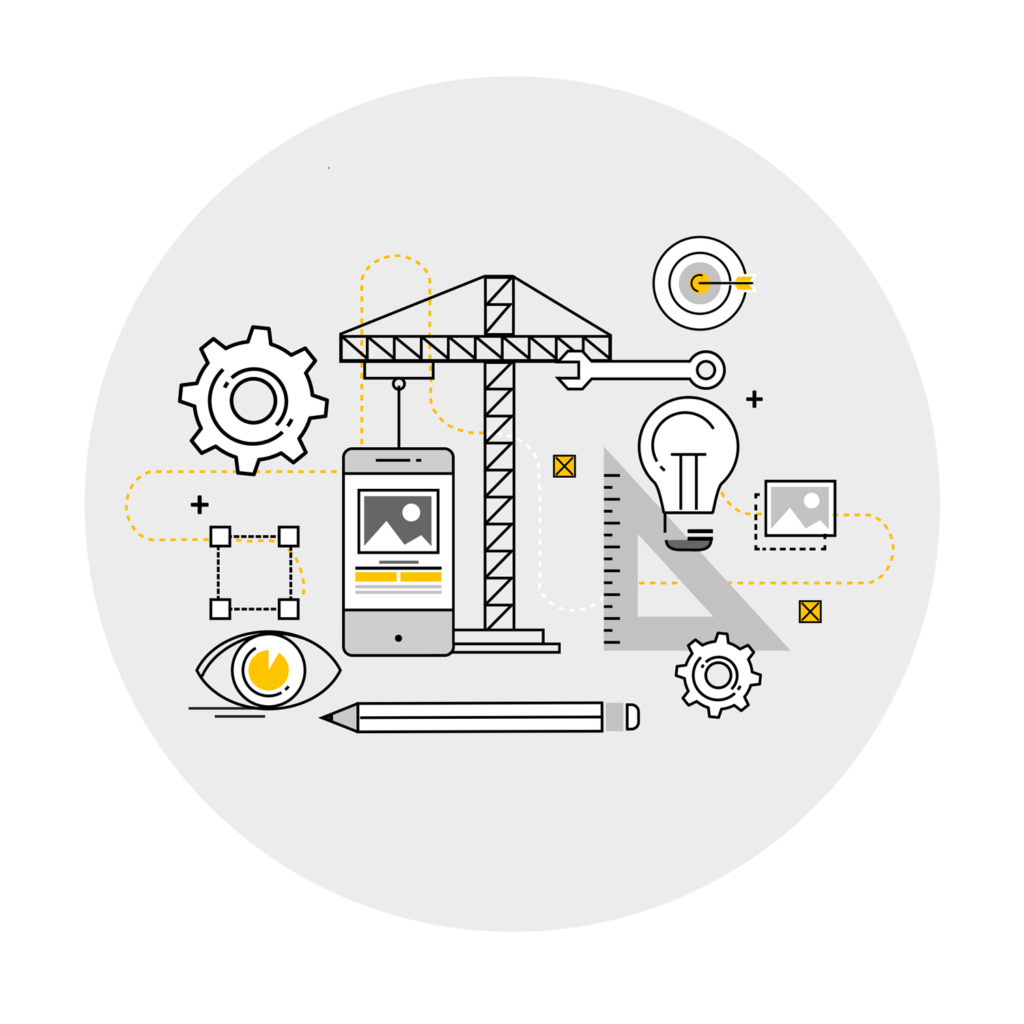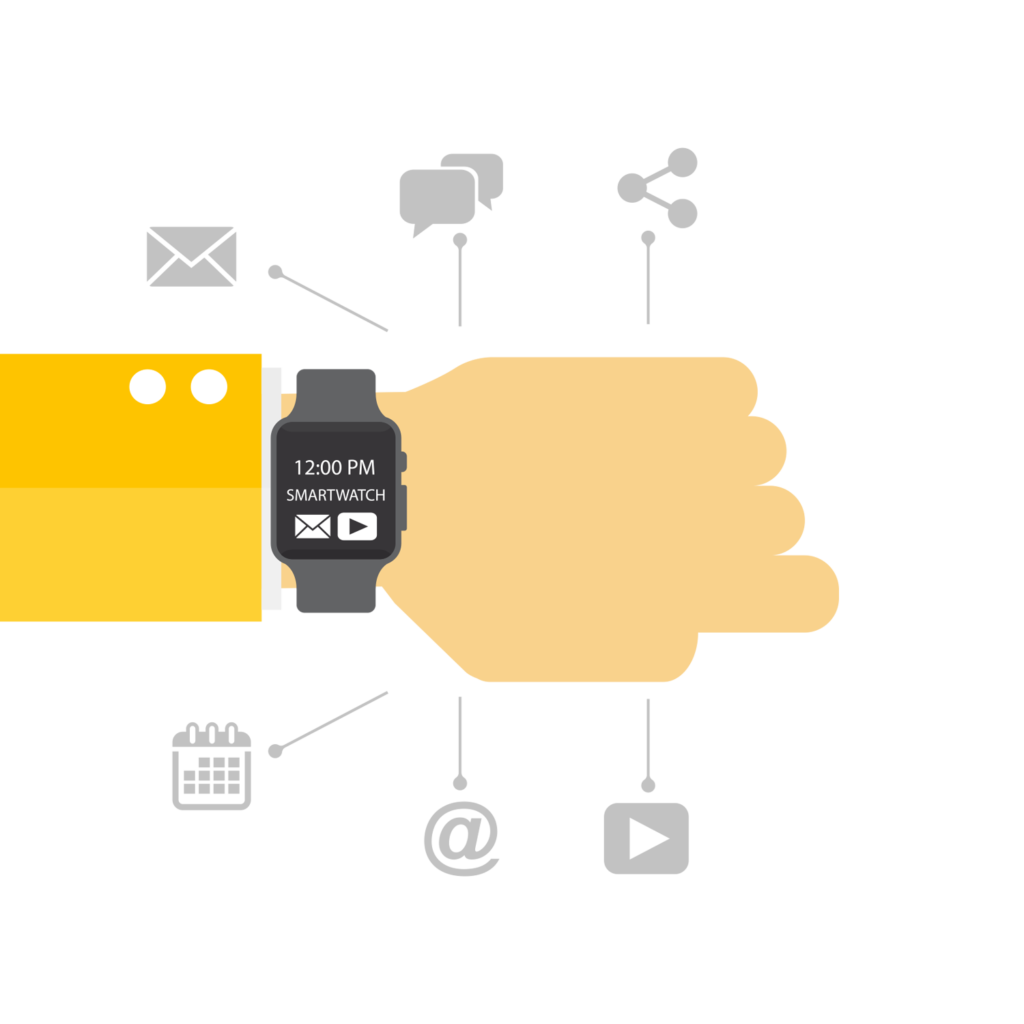Mobile development expertise in UppLabs helps us to create a unique mobile application or extend the capabilities of your existing software on mobile. Read below about mobile devices and technologies we apply to mobile development.
Mobile development services
What is mobile development? How is it different from web development?
Mobile development is the set of techniques and actions needed for creating software for wireless computing devices. Its critical difference from web development is that mobile apps are often created specifically for the unique features of a particular mobile device.
Modern mobile devices provide users with the same possibilities as a desktop computer with the help of HTML 5 support. In addition, mobile applications are ideal for fast startups as they bring excellent functionality. Mobile websites are the solution for all platforms without exception.
When developing a mobile application you should be aware of many options you don’t need to count on for web development. We’re talking about gestures, touch screens, responsive design, etc. Those nuances demand mobile development to be provided by professionals with huge expertise in the field.

Smartphones, tablets, e-books, wearable devices and more. Features you have to consider for mobile development
Development of mobile applications is possible for the following platforms:
- iOS
- Android
- Windows Mobile Platform
- BlackBerry OS
Also, there might be no particular platform if we talk about the PWA (Progressive Web Application). This is an app within your browser, displayed as a website.
A mobile application for mobile devices (not only smartphones) might be developed via native technologies, cross-platform, or hybrid ones. The way an app is developed defines the type of the mobile app. (We’ll tell about these types below).
You can apply the term ‘mobile development’ to creating soft for wearable devices like smart watches, sensors, tablets, Apple TV alike devices and more.

Features are presented in most mobile applications:
- Geolocation
- Microphone
- Voice search
- Motion sensors
- Fingerprint
- In-app billing (mobile payments)
- Camera API
- Notifications
- Multiscreen
- AI solutions
- Different widgets
When creating an app for Android-based mobile devices it’s important to pay attention to the interface design – it should be friendly and intuitive. In order to use the application effectively every day, it is important to work out the prototypes and design of the application. Developing applications for Android requires developers to have a thorough knowledge and understanding of the principles of effective user interaction with the application, as well as the design’s laws.
iOS-based mobile devices are used for more than 30% of users of iPhone OS mobile devices. Quality software starts with a program architecture project. When developing iOS applications, particular attention is given to the convenience of using the product. Therefore, while deciding on a business plan, developers usually move to the planning of the application architecture and then to the design of the interface of the mobile application. The created design layout is passed to the programmer who is working on the intended functionality.
There are some best practices that will make your mobile application useful, intuitive, and easy to use:
- Providing your mobile app with a handy search bar, so the users can easily find the content they need.
- Creating a responsive mobile design for different screen sizes.
- Creating different versions for other popular platforms your audience might use.
- Design the app with minimal use of the keyboard and more mobile screen touching.
- Include possibilities for feedback.
- Incorporate the ability to use offline.

What is included in the process of mobile development?
The stages of the mobile development process:
- defining the audience; (by the way, at this stage UppLabs can provide you with a free IT consultation and methods to define and validate your audience)
- choice of mobile platforms;
- concept development;
- composing technical task;
- interface design;
- development;
- testing;
- debugging;
- registration and release in stores;
- user interaction
- periodic updates.
It is important to make the mobile application convenient, fast, secure, understandable, and stable. This is especially true of applications that are constantly interacting with the Internet. Therefore, for pre-production control, it is imperative to carry out testing: so-called stress test – checking the response to unforeseen actions and simulating the real actions of all systems to confirm the overall readiness of the product.
Lean startup mobile development approach
When we talk about lean development methodology, we mean some principles of developing mobile apps. The lean startup approach for mobile development is used for designing and launching new applications quickly with the help of the most cost-effective way.
Using the words of the approach’s founder, Eric Ries: “The Lean Startup provides a scientific approach to creating and managing startups and get the desired product to customers’ hands faster”.
So, if you want to use the lean startup methodology, you should follow some important guidelines:
- Create the mockup and test them. Receive feedback from the users and correspond accordingly.
- Design non-native prototypes to see how the product works.
- Pay more attention to the new features of the mobile app. They help to attract users to keep using the app.
- It’s better to develop using only one platform. When it is good enough, you can try it on other platforms.
- Apply only the tools that reduce the time and effort for A/B testing. Data-driven testing of strings and colors can provide many answers to the questions.

If the business education used to focus on learning strategies and tools that formalize processes and effectiveness in existing companies, now we have more tools to find new business models in startups. And it looks like these tools have come up just in time to help other companies cope with disruptive innovation. In the 21st century all organizations – startups, small businesses, large corporations, as well as government agencies – will feel the pressure of rapid change. The methodology of a lean-startup will help to meet these challenges with dignity, quickly introduce innovations and change the usual business models.
We in UppLabs apply lean startup approach in all software development services we provide. But in mobile development, and for startups it shows the best results.
Custom mobile development advantages
More people use mobile development for business as custom mobile development has numerous advantages:
- Mobile applications can improve a company’s productivity and employee satisfaction.
- Updates and maintenance are easy to perform.
- Mobile apps bring competitive advantages. The companies can build an app that fits their processes.
- The company can ensure control over data security.
- The applications make it possible to integrate with other business applications.
- The business can develop mobile apps to upload to other app stores and the users can access them at a separate web address.
- It brings more mobility and freedom for users.
- The apps can gather more useful information about customer’s preferences, locations, and habits.
- Customized mobile apps save time and money.
- With a custom mobile app, you don’t share your information with third parties.
Mobile development methodology depends on the tech stack
There are three types of mobile applications:
- Hybrid apps. This is an opportunity to access all the functionality of mobile devices while using frameworks like HTML, Java, CSS. The code is written using standard web technologies and then it is packaged as a native app. These apps are fast and easy to develop, as they have a single code base for all platforms. It allows for low-cost maintenance and smooth updates. Such applications are a great solution for those who want to take full advantage of native applications in combination with the latest developments in web technologies. An example of hybrid software is Facebook, which can be downloaded from a software store, but requires an Internet connection.
- Native apps. This is the most functional and productive type of mobile application. Such apps are designed for a single mobile operating system, that’s why they are native for a platform or device. Their main advantage is a high performance, great user experience as developers use native device UI and access to a wide range of APIs with no limitation on app usage.
- Cross-platform mobile apps (outstanding possibility to create an app on multiple platforms simultaneously). Cross-platform mobile app development uses JavaScript to enable app functionality and HTML and CSS to create design elements. Cross-platforms are developed using:
– Xamarin used for developing Android and iOS apps based on C#. It’s possible to utilize code for different platforms.
– Ionic is an open-source UI framework that is mainly used to build cross-platform apps for Android, iOS, and the web. It uses a single-code base.
– React Native applies JavaScript code to native UI components and performs tasks.
– Flutter is an open-source framework that allows for creating native interfaces for Android and iOS.
– Adobe PhoneGap is a development framework that utilizes HTML5, CSS, and Javascript and allows us to share the developed application with other users.
What mobile development frameworks are in use in 2020?
The mobile application framework is a software framework, that allows you to create an application using its several sub-components like debuggers, interfaces, tools sets, different code libraries, and many more. In other words, the framework is the base of your app.
Below we collected the list of some best mobile frameworks for your mobile app development in 2020:
- Ext JS
- Ionic
- jQuery Mobile
- Adobe PhoneGap
- Xamarin
- Intel XDK
- React Native
- Flutter
- Mobincube
- Kendo UI
Depending on the key features and your mobile product’s purpose, different frameworks can be chosen. UppLabs suggests you stick to React Native and Flutter. However, we can calculate the optimum variant for you! And develop a perfect mobile product that will exceed your expectations!

Mobile development services offered by UppLabs
UppLabs develops mobile apps for:
- iOS and Android smartphones
- iPads
- Android tablets
- Apple Watch
- Android and Apple TV
For different mobile devices we can create:
- Location-based applications
- Android Instant apps
- Progressive Web Apps (PWAs)
Our team develops iOS and Android mobile apps using the latest techniques applied to the top apps in the world. We can help you to create a unique mobile application or extend the capabilities of your existing software on mobile.

UppLabs create mobile applications with:
- React Native
- Swift
- Kotlin
- Xamarin
- Ionic
You get the most value from our services when it comes to:
- Custom mobile application development;
- Supporting or extending an existing application that was built with .NET or Node.js;
- Revamping and innovating your legacy system;
- MVP Development;
- Converting PSD to Mobile screens (Ionic, React-Native, Xamarin, Swift views).
Here in UppLabs, we have experienced and dedicated software developers who want to create honest and trustful relationships with their clients. Our team has been working in the mobile development sphere for many years, and have dozens of successful projects and satisfied customers from all over the world.
The advantages of mobile development by UppLabs:
- Exceptional usability. From the onboarding to guiding customers through all necessary project’s steps.
- Delivering feature-packed mobile apps.
- Great performance.
- Multiplatform frontend expertise.
- Providing secure mobile expertise.
- Implementing the latest innovations.
- Providing the best solutions for all stages of project development.
- Timely technical support.
- High level of maintenance for our customers’ businesses.
- We go extra mile to show our commitment.
If you have any questions on mobile development – UppLabs is always here for you!
Ask whatever questions you have about mobile development!
Let us help you to build an outstanding mobile app for your business!
We hope to win your business and build a long-term relationship with you!
